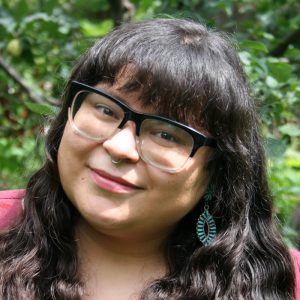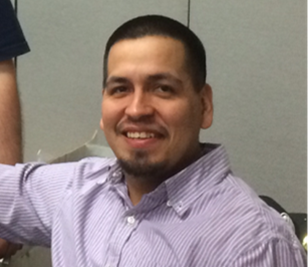
Indigenous nations have been stewarding the lands and waterways of what we now call the Midwest for millennia. In recent years, native nations, in particular women tribal members, have been at the forefront of social movements protecting water and investing in resilient and clean energy infrastructure.
In celebration of Native American Heritage Month, join us on Tuesday, November 1st to hear from a panel of experts on how sovereign Indigenous nations in Wisconsin and beyond are responding to the challenges and opportunities of energy infrastructure development on tribal lands.
This event is offered both in-person at the Wisconsin Energy Institute and online through Zoom Webinar.
Register here!
The University of Wisconsin-Madison is a barrier free campus and is committed to providing equal opportunity for participation in all programs, services, and activities. If you need an accommodation for this event please let us know by emailing outreach@energy.wisc.edu or calling 608-890-0946. Requests made with less than 3 weeks’ notice will be honored when possible.
Moderator
Parisa Sarzaeim
Research Associate, Water Resources Engineering UW–Madison
 Parisa Sarzaeim’s research interests and experiences are at the intersection of science and engineering for agricultural and water resources management. Her research work consists in analyzing climate change effects on the water-food-energy nexus. Currently, she is working on the impacts of natural resource extraction on water quality on tribal lands.
Parisa Sarzaeim’s research interests and experiences are at the intersection of science and engineering for agricultural and water resources management. Her research work consists in analyzing climate change effects on the water-food-energy nexus. Currently, she is working on the impacts of natural resource extraction on water quality on tribal lands.
Speakers
Sasha Maria Suarez
 Assistant Professor of History and American Indian Studies, UW–Madison
Assistant Professor of History and American Indian Studies, UW–Madison
Sasha Maria Suarez is an interdisciplinary scholar of twentieth century American Indian and Indigenous histories, with a special focus on the Great Lakes. Suarez received her PhD in American Studies from the University of Minnesota Twin Cities in 2020 and her dissertation, “Gakaabikaang: White Earth Ojibwe Women and the Creation of Indian Minneapolis in the Twentieth Century” examines the gendered practices of place-making, community organizing, and activism among White Earth Ojibwe in an urban environment from the 1920s to the 1970s. Suarez is currently in the process of working on her first manuscript, which centers on the labor of White Earth Ojibwe women in creating Ojibwe and intertribal community infrastructure in Minneapolis in the twentieth century. Her research interests include Indigenous social movements and urban histories, with a specificity on Indigenous cultural, communal, and political continuity. She is also interested in the gender dynamics at play in multiple different forms of Indigenous activism.
As a White Earth Ojibwe descendent, Suarez has great interest in how the construction of historical narratives (past and present) are made accessible or inaccessible to her nation and urban Indigenous communities. She has worked on curatorial and exhibition teams at the University of Minnesota and the Minnesota History Center to construct exhibitions on Red Lake Ojibwe and Indigenous experiences with mass incarceration. Suarez is also interested in the protection of Ojibwemowin (Ojibwe language) and other Indigenous languages through which we can better understand the places we live and work and their long histories and relationships to Indigenous peoples.
Daniel Wiggins JR
Tribal Energy Manager & Air Quality Technician, Mashkiiziibii (Bad River) Natural Resource Department
 Daniel Wiggins Jr, is a Bad River Tribal Member and the Mashkiiziibii (Bad River) Natural Resource Department’s- Air Quality Technician (AQT). Wiggins has worked for the Tribe for nearly 10 years as the AQT and has had oversight of the Tribe’s Renewable Energy Activities since 2017. He led tribal code development, specifically the review and adoption of utility codes on electrical transmission and energy products and was recently tasked as the Project Lead for the Ishkonige Nawadide Solar Microgrid Project, which installed over 500 kilowatts of solar and 1,000 kilowatt hours of batteries at three tribal facilities. The Tribe’s energy projects are further planned and executed on the Tribe’s ability to exercise energy sovereignty, and eventually reach the Tribe’s energy vision, “to empower and enable the community to move towards energy independence.
Daniel Wiggins Jr, is a Bad River Tribal Member and the Mashkiiziibii (Bad River) Natural Resource Department’s- Air Quality Technician (AQT). Wiggins has worked for the Tribe for nearly 10 years as the AQT and has had oversight of the Tribe’s Renewable Energy Activities since 2017. He led tribal code development, specifically the review and adoption of utility codes on electrical transmission and energy products and was recently tasked as the Project Lead for the Ishkonige Nawadide Solar Microgrid Project, which installed over 500 kilowatts of solar and 1,000 kilowatt hours of batteries at three tribal facilities. The Tribe’s energy projects are further planned and executed on the Tribe’s ability to exercise energy sovereignty, and eventually reach the Tribe’s energy vision, “to empower and enable the community to move towards energy independence.
Wiggins is also the Vice-chairperson of the Midwest Tribal Energy Resources Association.
Environmental Program Manager, Sault Ste. Marie Tribe of Chippewa Indians

Kathleen Brosemer has been the Environmental Program Manager for the Sault Ste. Marie Tribe of Chippewa Indians since 2010. She began working there just two months before Enbridge Line 6B spilled 1.2 million gallons of tar sands oil into Talmadge Creek in southern Michigan, evacuating members of the Nottawaseppi Huron Band of Odawa Indians and startling everyone in Michigan into paying attention to pipelines.
Her work fighting alongside tribal leadership to shut down Enbridge Line 5, a 66-year-old line that carries 23 million gallons per day along the shore of Lake Michigan and across the Straits of Mackinac, has led her into protests, governor’s offices, kayak flotillas, media scrums, water ceremonies, and most recently into Michigan Tech, where she’s working towards her PhD in Energy and Environmental Policy, anticipated in 2023. Her dissertation is on energy justice for the Anishnabek, a people that straddle the international border that was imposed during treaty times.
Her spirit name is Azhede-kwe, White Pelican Woman, after an elder who accompanied her to Standing Rock had a dream. In the dream, Kathie turned into a pelican to rescue a drowning child and return her to the people.
